Americans Celebrate Juneteenth After It Becomes A National Holiday, PBS News, NBC News, NPR, The Atlantic, and The Public Domain Review
PBS NewsHour Weekend Full Episode June 17, 18 & 19, 2021
Meet The Press Broadcast (Full) – June 20th, 2021, NBC News
NBC News NOW Full Broadcast – June 17th & 18th, 2021, NBC News
Can You Hear Us Now: Juneteenth Edition, Jun 19, 2021 NBC News
NPR: Photos – Americans Celebrate Juneteenth After It Becomes A National Holiday
NPR: Slavery Didn’t End On Juneteenth. What You Should Know About This Important Day
The Atlantic: Black Joy-Not Corporate Acknowledgment – Is the Heart of Juneteenth
The Public Domain Review: Early Photographs of Juneteenth Celebrations
PBS NewsHour Weekend Full Episode June 19, 2021
Jun 19, 2021 PBS NewsHour
On this edition for Saturday, June 19, the nation’s newest federal holiday, Juneteenth, and Iran’s hard-line candidate, Ebrahim Raisi wins the presidential election. Also, inside Maryland’s truth and reconciliation process as part of the state’s reckoning with its racist, violent past. Hari Sreenivasan anchors from New York. Stream your PBS favorites with the PBS app: https://to.pbs.org/2Jb8twG Find more from PBS NewsHour at https://www.pbs.org/newshour Subscribe to our YouTube channel: https://bit.ly/2HfsCD6
PBS NewsHour full episode, June 18, 2021
Fundraiser
Streamed live on Jun 18, 2021 PBS NewsHour
Stream your PBS favorites with the PBS app: https://to.pbs.org/2Jb8twG Find more from PBS NewsHour at https://www.pbs.org/newshour Subscribe to our YouTube channel: https://bit.ly/2HfsCD6 Follow us: Facebook: http://www.pbs.org/newshour Twitter: http://www.twitter.com/newshour Instagram: http://www.instagram.com/newshour Subscribe: PBS NewsHour podcasts: https://www.pbs.org/newshour/podcasts Newsletters: https://www.pbs.org/newshour/subscribe
PBS NewsHour full episode, June 17, 2021
Fundraiser
Jun 17, 2021 PBS NewsHour
Support your local PBS station here: https://pbs.org/donate Thursday on the NewsHour, the Affordable Care Act survives a third major Supreme Court argument. We talk to the secretary of health and human services about the challenges still ahead. Then, counterterrorism forces in Iraq search for remnants of the Islamic State — with civilians often caught in the middle. And, we examine the emotional toll gun violence takes on youth who have lost a loved one. Stream your PBS favorites with the PBS app: https://to.pbs.org/2Jb8twG Find more from PBS NewsHour at https://www.pbs.org/newshour Subscribe to our YouTube channel: https://bit.ly/2HfsCD6 Follow us: Facebook: http://www.pbs.org/newshour Twitter: http://www.twitter.com/newshour Instagram: http://www.instagram.com/newshour Subscribe: PBS NewsHour podcasts: https://www.pbs.org/newshour/podcasts Newsletters: https://www.pbs.org/newshour/subscribe
Meet The Press Broadcast (Full) – June 20th, 2021
Jun 20, 2021 NBC News
Sens. Bernie Sanders (I-Vt.) and Rob Portman (R-Ohio) discuss the future of bipartisanship and President Biden’s infrastructure plan. Fiona Hill breaks down the Biden-Putin summit. Ashley Parker, Cornell Belcher, Brad Todd and Amna Nawaz join the Meet the Press roundtable.» Subscribe to NBC News: http://nbcnews.to/SubscribeToNBC » Watch more NBC video: http://bit.ly/MoreNBCNews NBC News Digital is a collection of innovative and powerful news brands that deliver compelling, diverse and engaging news stories. NBC News Digital features NBCNews.com, MSNBC.com, TODAY.com, Nightly News, Meet the Press, Dateline, and the existing apps and digital extensions of these respective properties. We deliver the best in breaking news, live video coverage, original journalism and segments from your favorite NBC News Shows.
NBC News NOW Full Broadcast – June 18th, 2021
Jun 18, 2021 NBC News
A look into the new Covid variant and what it’s mutation means for U.S. residents, fact checking the ongoing election audit in Maricopa County, AZ, as it enters the final stage of the controversial process, Juneteenth cooking traditions and the significance behind them. » Subscribe to NBC News: http://nbcnews.to/SubscribeToNBC? » Watch more NBC video: http://bit.ly/MoreNBCNews? NBC News Digital is a collection of innovative and powerful news brands that deliver compelling, diverse and engaging news stories. NBC News Digital features NBCNews.com, MSNBC.com, TODAY.com, Nightly News, Meet the Press, Dateline, and the existing apps and digital extensions of these respective properties. We deliver the best in breaking news, live video coverage, original journalism and segments from your favorite NBC News Shows.
https://www.youtube.com/watch?v=VQj1cRVNhH8
NBC Nightly News Broadcast (Full) – June 17th, 2021
Jun 17, 2021 NBC News
Cities and states across the west experiencing record high temperatures, Supreme Court rejects challenge to Affordable Care Act, and White House to develop antiviral Covid pills as delta variant spreads. Watch “NBC Nightly News With Lester Holt” at 6:30 p.m. ET / 5:30 p.m. CT (or check your local listings). 00:00 Intro 02:41 Record Breaking Heat Wave In The West 04:56 Obamacare Supreme Court Victory 07:23 Anti-Covid Pills 09:08 Biden’s Next Challenges 10:39 America The Vulnerable: No Access To Water 14:53 Juneteenth National Holiday 18:36 Inspiring America: Love Dad » Subscribe to NBC News: http://nbcnews.to/SubscribeToNBC » Watch more NBC video: http://bit.ly/MoreNBCNews Connect with NBC Nightly News online! NBC News App: https://smart.link/5d0cd9df61b80 Breaking News Alerts: https://link.nbcnews.com/join/5cj/bre… Visit NBCNightlyNews.com: https://nbcnews.to/2wFotQ8 Find Nightly News on Facebook: https://bit.ly/2TZ1PhF Follow Nightly News on Twitter: https://bit.ly/1yFY2s4 Follow Nightly News on Instagram: https://bit.ly/2tEncJD NBC News Digital is a collection of innovative and powerful news brands that deliver compelling, diverse and engaging news stories. NBC News Digital features NBCNews.com, MSNBC.com, TODAY.com, Nightly News, Meet the Press, Dateline, and the existing apps and digital extensions of these respective properties. We deliver the best in breaking news, live video coverage, original journalism and segments from your favorite NBC News Shows. #NBCNews #Obamacare #Covid
Can You Hear Us Now: Juneteenth Edition
Jun 19, 2021 NBC News
This is a rebroadcast which originally aired on June 19, 2020. NBC News Now and NBCBLK present ‘Can You Hear Us Now: Juneteenth’ an examination of how free African Americans really are, hosted by Trymaine Lee. » Subscribe to NBC News: http://nbcnews.to/SubscribeToNBC » Watch more NBC video: http://bit.ly/MoreNBCNews NBC News Digital is a collection of innovative and powerful news brands that deliver compelling, diverse and engaging news stories. NBC News Digital features NBCNews.com, MSNBC.com, TODAY.com, Nightly News, Meet the Press, Dateline, and the existing apps and digital extensions of these respective properties. We deliver the best in breaking news, live video coverage, original journalism and segments from your favorite NBC News Shows. Connect with NBC News Online! NBC News App: https://smart.link/5d0cd9df61b80 Breaking News Alerts: https://link.nbcnews.com/join/5cj/bre… Visit NBCNews.Com: http://nbcnews.to/ReadNBC Find NBC News on Facebook: http://nbcnews.to/LikeNBC Follow NBC News on Twitter: http://nbcnews.to/FollowNBC Follow NBC News on Instagram: http://nbcnews.to/InstaNBC
NPR: Photos – Americans Celebrate Juneteenth After It Becomes A National Holiday
June 19, 20217:12 PM ET
People watch the Juneteenth Parade in historic Galveston, Texas on Saturday — where 156 years ago news reached the city that slavery had been abolished.
Go Nakamura/Getty Images
Juneteenth celebrations are underway across the United States, commemorating the 156th anniversary of the date that is often considered the end of chattel slavery in the country.
Events this year come two days after Presidet Biden signed the Juneteenth National Independence Day Act into law, which is the latest national holiday to be recognized since Martin Luther King Jr. Day in 1983.
POLITICS
Juneteenth Is Now A Federal Holiday
It dates to June 19, 1865, when Maj. Gen. Gordon Granger of the Union Army arrived in Galveston, Texas, to announce that enslaved people were now free. This came two months after the end of the Civil War and over two years after President Abraham Lincoln issued the Emancipation Proclamation, which was supposed to free all slaves living in Confederate states.
The holiday has gone on to be a cause for celebration, remembrance and a call to action as Americans continue to reckon with the country’s history of systemic racism.
HISTORY
Slavery Didn’t End On Juneteenth. Here’s What You Should Know About This Important Day
Commemorative events ranging from festivals and celebrations to rallies and memorials are expected to take place throughout the weekend.
Galveston
People admire a new mural created for Juneteenth that chronicles what happened in Galveston 156 years ago. The mural was created as part of the city’s Juneteenth Legacy Project.
Go Nakamura/Getty Images
A Black Lives Matter banner is draped off the back of a pickup truck during a city’s parade.
Go Nakamura/Getty Images
Brooklyn
Activists unveil a new memorial honoring George Floyd in Flatbush Junction on Saturday morning. Terrance Floyd, center, the brother of George Floyd, attended and spoke at the event.
David Dee Delgado/Getty Images
Dancers of the P.U.S.H. (Practice Until Something Happens) dance team perform at a Juneteenth rally outside the Brooklyn Library.
David Dee Delgado/Getty Images
Tulsa
Marlon F. Hall leads a yoga class next to Interstate 244, which runs through the Tulsa neighborhood of Greenwood, the location of the Tulsa Race Massacre 100 years ago. Tulsa’s celebration of Juneteenth comes less than three weeks after the anniversary.
Michael B. Thomas/Getty Images
A father and son take a selfie while visiting Greenwood’s Black Wall Street Memorial on Saturday.
Michael B. Thomas/Getty Images
Louisville
Louisville residents march in honor of Juneteenth, steered by the River City Drum Corps. The crowd heads to the launch of the Roots 101 Museum’s newest art project, which spotlights the city’s history with slavery.
Jon Cherry/Getty Images
A woman displays an embroidered “1865” in her hair while attending the launch of a new art project at Louisville’s Roots 101 Museum on Saturday. The project, titled “On the Banks of Freedom,” explores Louisville’s participation in slavery and commemorates the lives of enslaved people whose names were not recorded.
Jon Cherry/Getty Images
Detroit
A mural displaying the words “Power To The People” is repainted in honor of Juneteenth by students studying at the University Prep Art Design. The mural was first painted last year for the holiday.
Ed White/AP
Atlanta
Participants walk in Atlanta’s Juneteenth parade, rain or shine.
Megan Varner/Getty Images
Food vendors gather together on Friday in Atlanta’s Castleberry Hill to honor Juneteenth. The event, named, “Celebration of Truth,” was hosted by The Black News Network.
Paras Griffin/Getty Images for Black News Chan
Boston
Acting Mayor Kim Janey, right, takes a photo as Bostonians gather together on Friday in Nubian Square. Janey is the first woman and first Black person to serve as mayor of Boston.
Elise Amendola/AP
For more information, please visit the following link:
NPR: Slavery Didn’t End On Juneteenth. What You Should Know About This Important Day
June 17, 20216:00 AM ET
SHARON PRUITT-YOUNG
Emancipation Day is celebrated in 1905 in Richmond, Va., the onetime capital of the Confederacy.
Library of Congress
It goes by many names. Whether you call it Emancipation Day, Freedom Day or the country’s second Independence Day, Juneteenth is one of the most important anniversaries in our nation’s history.
On June 19, 1865, Maj. Gen. Gordon Granger, who had fought for the Union, led a force of soldiers to Galveston, Texas, to deliver a very important message: The war was finally over, the Union had won, and it now had the manpower to enforce the end of slavery.
The announcement came two months after the effective conclusion of the Civil War, and even longer since President Abraham Lincoln had first signed the Emancipation Proclamation, but many enslaved Black people in Texas still weren’t free, even after that day.
That was 156 years ago. Here are the basics of Juneteenth that everyone should know.
What Juneteenth represents
First things first: Juneteenth gets its name from combining “June” and “nineteenth,” the day that Granger arrived in Galveston, bearing a message of freedom for the slaves there.
Upon his arrival, he read out General Order No. 3, informing the residents that slavery would no longer be tolerated and that all slaves were now free and would henceforth be treated as hired workers if they chose to remain on the plantations, according to the National Museum of African American History and Culture.
General Order No. 3 was the final execution and fulfillment of the terms of the Emancipation Proclamation. The people to whom this order was addressed were the last group of Americans to be informed that all formerly enslaved persons were now free.
National Archives
“The people of Texas are informed that in accordance with a Proclamation from the Executive of the United States, all slaves are free. This involves an absolute equality of rights and rights of property between former masters and slaves, and the connection heretofore existing between them becomes that between employer and hired laborer,” the order reads, in part.
Article continues after sponsor message
It’s perhaps unsurprising that many former slaves did not stay on the plantations as workers and instead left in search of new beginnings or to find family members who had been sold away.
“It immediately changed the game for 250,000 people,” Shane Bolles Walsh, a lecturer with the University of Maryland’s African American Studies Department, told NPR.
Enslaved Black people, now free, had ample cause to celebrate. As Felix Haywood, a former slave, recalled: “Everybody went wild. We all felt like heroes … just like that, we were free.”
Slavery did not end on Juneteenth
When Granger arrived in Galveston, there still existed around 250,000 slaves and they were not all freed immediately, or even soon. It was not uncommon for slave owners, unwilling to give up free labor, to refuse to release their slaves until forced to, in person, by a representative of the government, historian Henry Louis Gates Jr. wrote. Some would wait until one final harvest was complete, and some would just outright refuse to submit. It was a perilous time for Black people, and some former slaves who were freed or attempted to get free were attacked and killed.
For Confederate states like Texas, even before Juneteenth, there existed a “desire to hold on to that system as long as they could,” Walsh explained to NPR.
Before the reading of General Order No. 3, many slave owners in Confederate states simply chose not to tell their slaves about the Emancipation Proclamation and did not honor it. They got away with it because, before winning the war, Union soldiers were largely unable to enforce the Emancipation Proclamation in Southern states. Still, even though slavery in America would not truly come to an end until the ratification of the 13th Amendment, the Emancipation Proclamation still played a pivotal role in that process, historian Lonnie Bunch told NPR in 2013.
“What the Emancipation Proclamation does that’s so important is it begins a creeping process of emancipation where the federal government is now finally taking firm stands to say slavery is wrong and it must end,” Bunch said.
People have celebrated Juneteenth any way they can
After they were freed, some former slaves and their descendants would travel to Galveston annually in honor of Juneteenth. That tradition soon spread to other states, but it wasn’t uncommon for white people to bar Black people from celebrating in public spaces, forcing Black people to get creative. In one such case, Black community leaders in Houston saved $1,000 to purchase land in 1872 that would be devoted specifically to Juneteenth celebrations, according to the Houston Parks and Recreation Department. That land became Emancipation Park, a name that it still bears.
Juneteenth is celebrated in Houston’s Emancipation Park, which was created specifically for such celebrations, in 1880.
” ‘If you want to commemorate something, you literally have to buy land to commemorate it on’ is, I think, just a really potent example of the long-lasting reality of white supremacy,” Walsh said.
Nevertheless, Black Americans found a way to continue to celebrate and lift one another up. Early on, Juneteenth celebrations often involved helping newly freed Black folks learn about their voting rights, according to the Texas State Historical Association. Rodeos and horseback riding were also common. Now, Juneteenth celebrations commonly involve cookouts, parades, church services, musical performances and other public events, Walsh explained.
People celebrate last year’s Juneteenth by riding horses through Washington Park in Chicago. This year, it is a federal holiday.
Natasha Moustache/Getty Images
It’s a day to “commemorate the hardships endured by ancestors,” Walsh said. He added, “It really exemplifies the survival instinct, the ways that we as a community really make something out of nothing. … It’s about empowerment and hopefulness.”
And there’s reason to be hopeful. After literal decades of activists campaigning for change, Congress has approved Juneteenth as a federal holiday.
CorrectionJune 19, 2021
A previous version of this story incorrectly said that Black community leaders bought the land for Emancipation Park in Houston in 1867. The land was purchased and park established in 1872.
For more information, please visit the following link:
https://www.npr.org/2021/06/17/1007315228/juneteenth-what-is-origin-observation
The Atlantic: Black Joy-Not Corporate Acknowledgment – Is the Heart of Juneteenth
Companies and state governments are finally recognizing Emancipation Day as an official holiday, but black Americans have honored its significance all along.
Historically, Juneteenth has not been widely recognized outside of black communities. (Library of Congress)
JUNE 19, 2020
SHARE
In 2002 I was at the University of Iowa conducting research on the history of Emancipation Day celebrations in the state. I remember at one point being somewhat baffled by what Leslie Schwalm, the professor I was working with, had found: From 1865 to 1963, there were more than 200 Emancipation Day festivities in Iowa alone. I had always thought of the event as a Texas holiday.
While most enslaved people were freed by the Emancipation Proclamation put forth by Abraham Lincoln in 1863, those in Texas weren’t made aware of the decree until 1865. On June 19 of that year, Major General Gordon Granger landed at Galveston, Texas, with news that the war was over and the enslaved were now, finally, free. Scholars have debated the many reasons for the two-year delay, but one thing is clear: Black people in almost every state have celebrated June 19, or Juneteenth, for generations.
Children celebrate Juneteenth at Fair Park in Dallas, Texas, in 1952. (Marion Butts/Dallas Express / Dallas Public Library)
Historically, Juneteenth has not been widely recognized outside of black communities, and it’s taken some time for the general public to acknowledge the date officially. Over the past 40 years, 47 of 50 U.S. states and the District of Columbia have come to recognize Juneteenth as a state holiday or a day of observance, but it’s not yet a federal holiday. And given the current nationwide protests against police brutality and systemic racism, major corporations such as Nike, Uber, Spotify, and J. C. Penney have designated Juneteenth as a paid holiday. Though holidays, symbols, statues, and flags matter, it will take more than increased recognition of Juneteenth to combat racism. If not followed with substantive change, the relatively recent scramble to acknowledge Juneteenth will just feel like virtue signaling, acts of solidarity that ring hollow.
Whether companies and governments get it right or not, black-led celebrations will remain the heart of Juneteenth. Early events venerated black Civil War veterans and were mainly held in private places that could be shielded from the white gaze. Later ones were marked by reunions, parades, and symbolic foods such as strawberry soda, red beans and rice, red velvet cake, and watermelon (the color red represents the perseverance of black ancestors). Black churches often spearheaded the day’s programming, which could include speeches from children who memorized quotes from their favorite black heroes, or singing of the black national anthem, “Lift Every Voice and Sing.” Post–World War II commemorations were not complete until someone read the Emancipation Proclamation aloud.
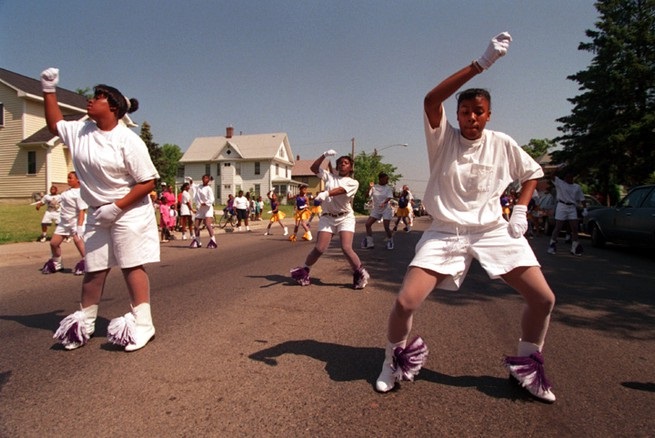
A drill team performs in a Juneteenth parade in Minneapolis in 1995. (Marlin Levison / Star Tribune / Getty)
Today, Juneteenth serves as an occasion for voter-registration drives and to support black-owned businesses or community fundraisers. This year in Houston, you can attend a virtual parade or take a Juneteenth bike ride. In Los Angeles, you can go on a four-mile walk to the Juneteenth monument at Ganesha Park. In New Orleans, you can visit Congo Square, a historical gathering place for enslaved and free people, or you can spend the day at the Whitney Plantation, the only plantation museum in Louisiana with a direct focus on the lives of enslaved people.
Despite the numerous ways to honor Juneteenth, one thing about the holiday endures throughout generations: the paradox of black people’s lived experiences. How could they at once celebrate freedom and acknowledge that the residue of slavery continues to influence their lives? The turn of the century represented the height of black minstrelsy, violent attacks on black communities, and the Supreme Court ruling in Plessy v. Ferguson, which made segregation the law of the land. John L. Thompson, the editor of the Iowa State Bystander, the state’s most prestigious black newspaper at the time, grappled with how to negotiate what he saw as a new era of American race relations. At an Emancipation Day celebration in 1898, Thompson asked the audience to “see the slave scarred veterans who are before me today and have witness to their once cruel and inhuman treatment,” noting that “all of this was done under our beautiful and so-called flag of the free.”
Now many black Americans are wrestling with how to celebrate Juneteenth amid the protests and the coronavirus pandemic. I came across a tweet that read, “Some of us fight racism by raising our black children to know joy. This matters too.” Black Americans have always held both jubilation and sorrow in their hands: Demonstrators will chant “I can’t breathe” and in the same space break out into a collective electric slide. As Imani Perry wrote for The Atlantic, “Racism is terrible. Blackness is not.”
Miss Juneteenth 2015 waves to her fans in Denver, Colorado. (Kathryn Scott Osler / The Denver Post / Getty)
One of my colleagues at Rhodes College, the professor Charles McKinney, wrote recently to his black students: “We are not solely the history of fighting white folks. That is not who we are. We are double-dutch in summer. We are letting the air out of Big Mama’s house. We are Uncle Ray’s jokes on top of jokes. We are collards, second lines, and blue lights in the basement. We are swagger in the midst of chaos. We are reunions and step shows. We are the borough and the bayou. We are church till two, and the corner till four. We are a universe of experiences.”
And so, in the middle of a chaotic period in this nation’s history, Black Americans pause to celebrate. They will barbecue, and dance, and pray, and love, and live in the name of freedom. The rest of America can use the day off to work on its own freedom—from a shameful past and a violent present.
Kellie Carter Jackson is an assistant professor of Africana studies at Wellesley College, and the author of Force and Freedom: Black Abolitionists and the Politics of Violence. Twitter
For more information, please visit the following link:
The Public Domain Review: Early Photographs of Juneteenth Celebrations
Martha Yates Jones (left) and Pinkie Yates (right), daughters of Rev. Jack Yates, in a decorated carriage parked in front of the Antioch Baptist Church located in Houston’s Fourth Ward, 1908 — Source
Although Abraham Lincoln issued the Emancipation Proclamation on January 1, 1863, the Civil War then raging prevented it being enacted in much of the American South until months or even years later. Emancipation Day, or Juneteenth, is a celebration to mark the eventual country-wide realization of the decree — on June 19, 1865, when around 250,000 enslaved people were finally declared free in Texas — the last state in the US to be reached by the Union Army, commanded by General Gordon Granger, meaningfully accompanied, as historian Elizabeth Hayes Turner notes, by “two transports of colored troops”. Although Granger did not read out the Emancipation Proclamation itself on that day in Galveston, he did read out “General Order No. 3”, which began:
The people of Texas are informed that in accordance with a Proclamation from the Executive of the United States, all slaves are free. This involves an absolute equality of rights and rights of property between former masters and slaves, and the connection therefore existing between them becomes that between employer and free laborer.
One year later, the first anniversary of Juneteenth — or “Jubilee Day” as it was then called — was celebrated in several places in Texas. The tradition soon took hold throughout the state. Communal barbecues, concerts, prayer services, parades, as well as baseball games, fishing, and rodeos, all featured in the festivities. Some former enslaved people and their descendants living in far-flung parts of Texas made a pilgrimage to Galveston, and many dressed in their finest clothes — partly in response to the pre–1865 statewide laws that had prevented enslaved people from dressing in any clothing not given to them by those who held them in slavery.
Many of the photographs that survive from these early decades of the celebration — including sets from Houston and Corpus Christi — depict elegantly dressed groups in horse-drawn carriages elaborately decorated with flowers down to the wheels. Another set from Austin — taken in 1900 by Grace Murray Stephenson — shows a group of older people, many or all of whom would have been born into slavery, dressed up for the day, as well as a very well-posed six-piece band, and a group of men decked out in Civil War uniforms (perhaps reenacting the Union’s entry into Galveston).
Of course, violence toward Black Americans did not magically evaporate with emancipation, and racial segregation and prejudice in some places made Juneteenth celebrations very difficult. Often forbidden from celebrating on public land, many gatherings had to be disparately held in remote rural areas or small church grounds, leading some Black Texan communities to band together and buy land specifically for celebrating Juneteenth (and other community occasions). The first such communally-bought land was Houston’s Emancipation Park, a ten-acre lot purchased in 1872 by the Colored People’s Festival and Emancipation Park Association led by the Baptist minister and formerly enslaved Jack Yates. You can see Reverend Yates pictured (far left) in the Juneteenth group shot below (and in the featured image above, two of his daughters in a decorated carriage).
Group on Emancipation Day, circa 1880s, in Houston’s Emancipation Park. Reverend Jack Yates, who led the community purchase of the Park in 1872, is pictured on the far left, and his daughter Sallie Yates dressed in black in the centre — Source
Following Houston’s example, in 1898, Mexia’s Nineteenth of June Organization bought an area of land on the banks of the Navasota River, now known as Booker T. Washington Park, which was said to draw up to 30,000 for the celebration. Another dedicated community-bought land was in Austin. The photographs we’ve featured of the city’s Juneteenth celebrations of 1900 took place in what was then called Wheeler’s Grove (now Eastwoods Park) but a few years later an association, led by the formerly enslaved Thomas J. White, purchased a plot for the purpose, also named Emancipation Park (although 30 years later the city of Austin seized it to build housing).
Over the course of the late nineteenth and early twentieth centuries, Juneteenth festivities became increasingly common outside of Texas — often brought to new places throughout the country by Black Americans who’d moved away from the state. In the 1950s, the holiday temporarily faded in popularity. This was to some extent due to the Great Migration, when many Black Americans found themselves in northern cities, working for bosses who did not recognize Juneteenth. (The US Congress has still not recognized it as a national holiday, although forty-seven states do at least acknowledge its existence.) It was also to some extent due to the changing political attitudes of the mid–twentieth century, when celebration of difference was sometimes seen as antithetical to integration.
During the last half century, however, Juneteenth has grown more and more popular again. In addition to the old traditions of parades, cookouts, and music, new traditions have sprung up — including readings of work by Black American writers such as Maya Angelou and Ralph Ellison (whose second, long, and long-unfinished novel was titled Juneteenth). The celebration of difference and the commemoration of the ongoing struggle for freedom, equality, and respect have become central to this second American Independence Day.
You can read more about Juneteenth —past, present, and future — here and browse our selection of historical photographs of Juneteenth celebrations from across the US below.
For more information, please visit the following link:
https://publicdomainreview.org/collection/juneteenth-photographs

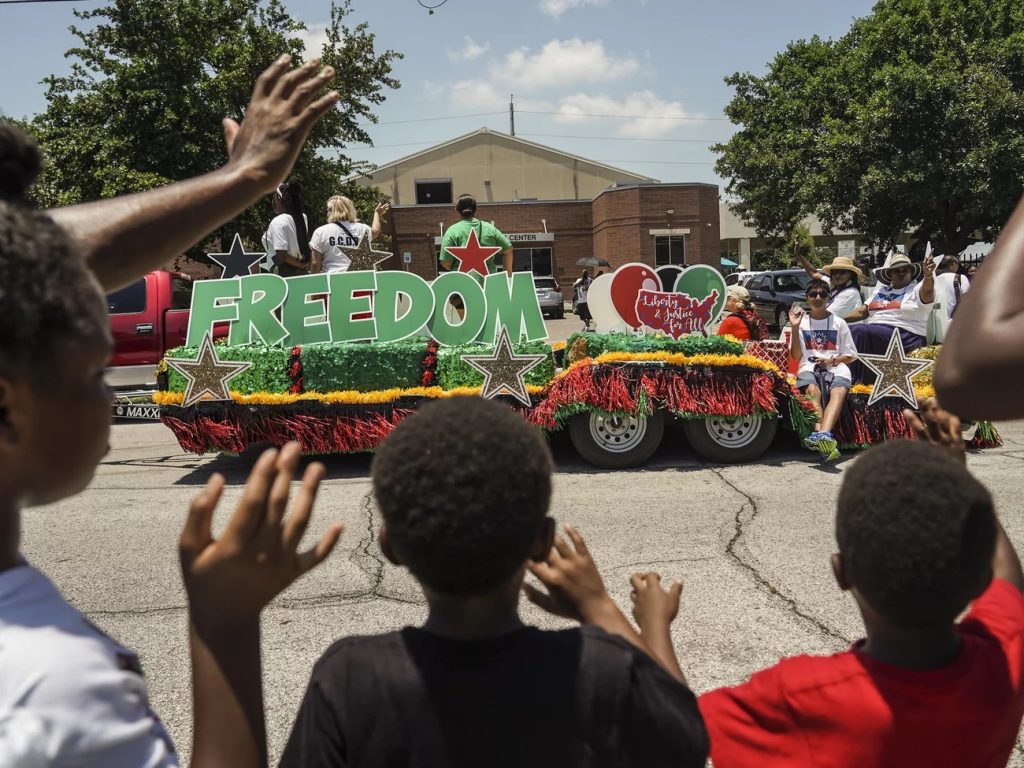
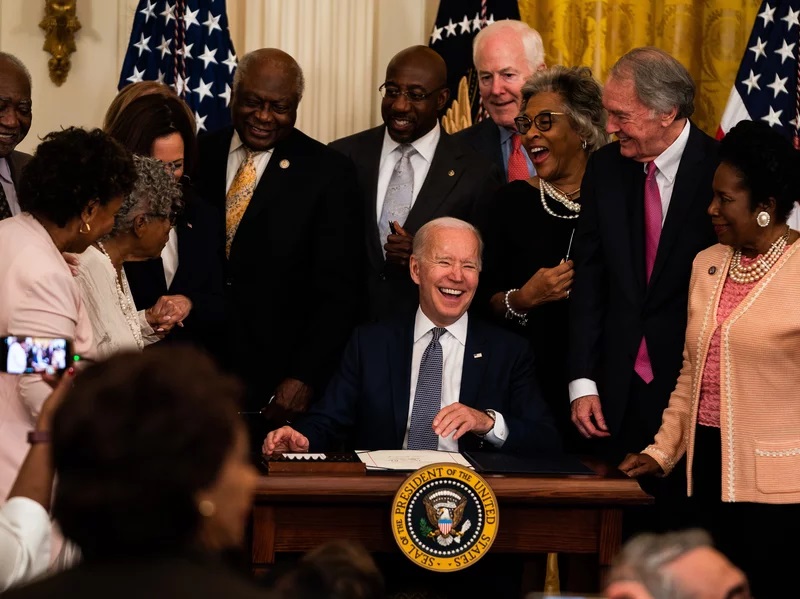
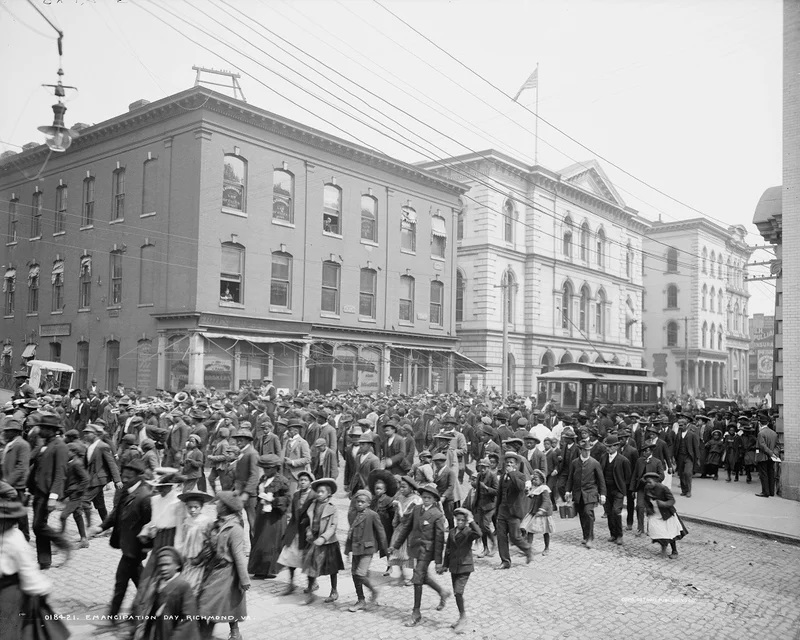
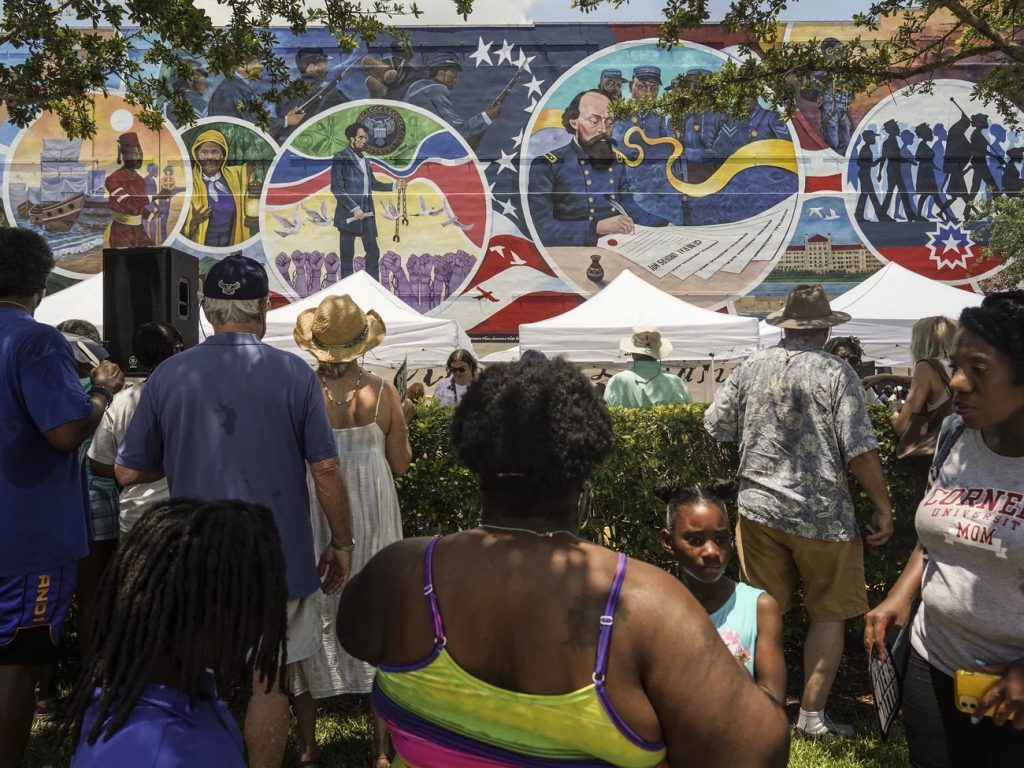
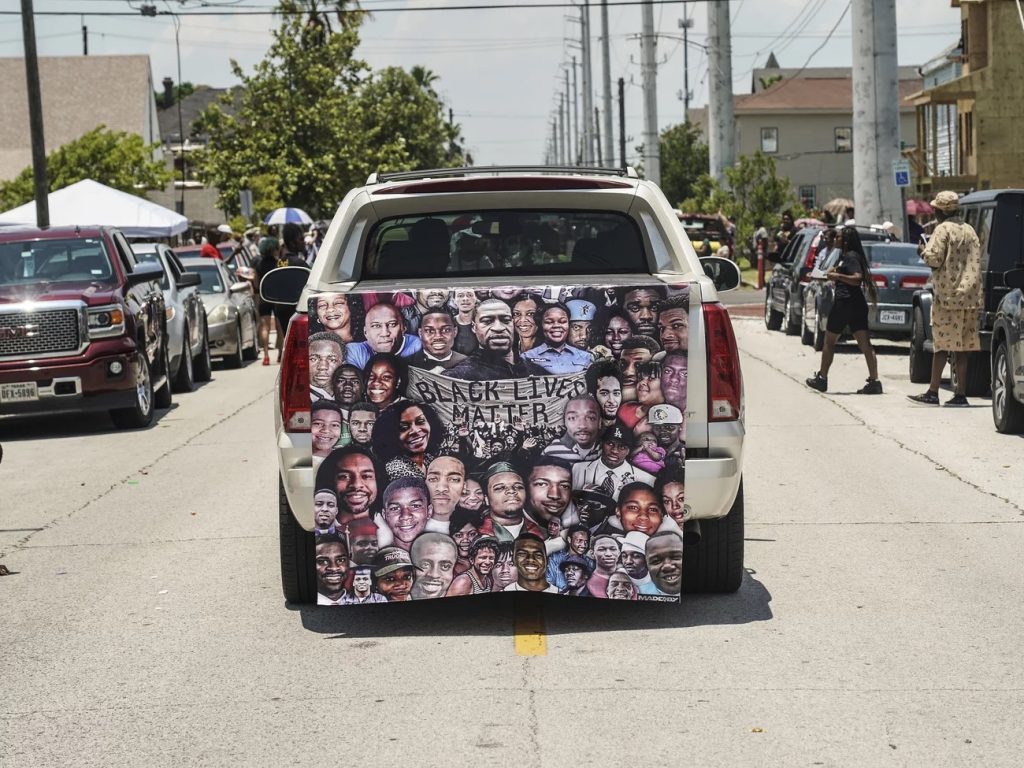
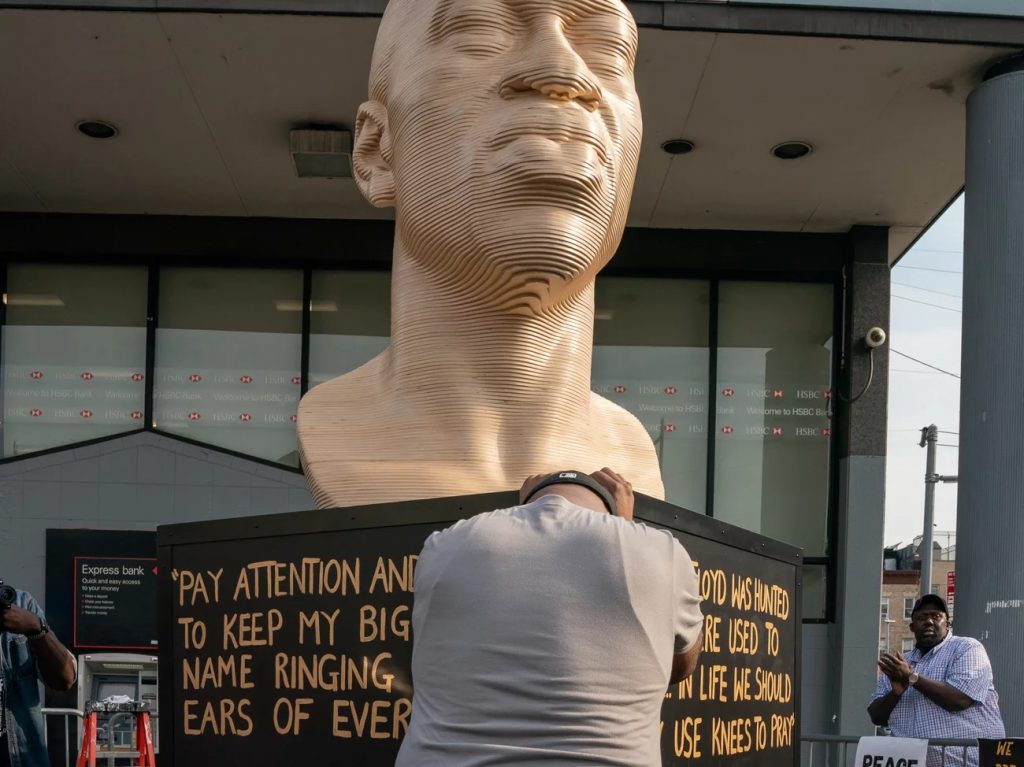
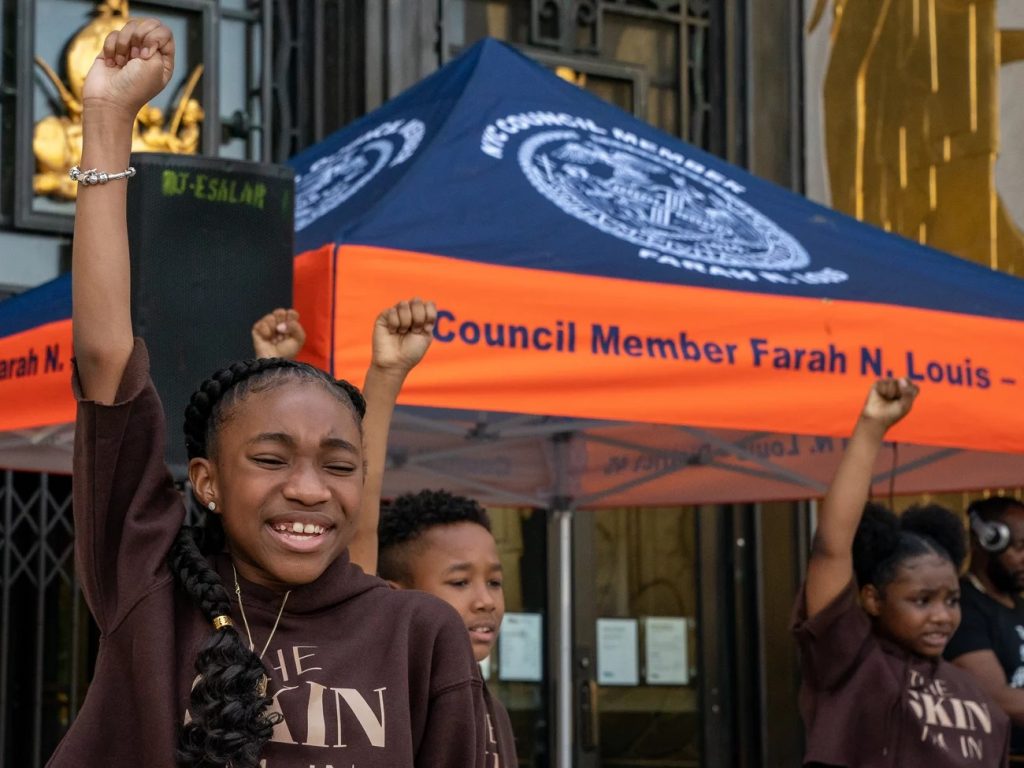
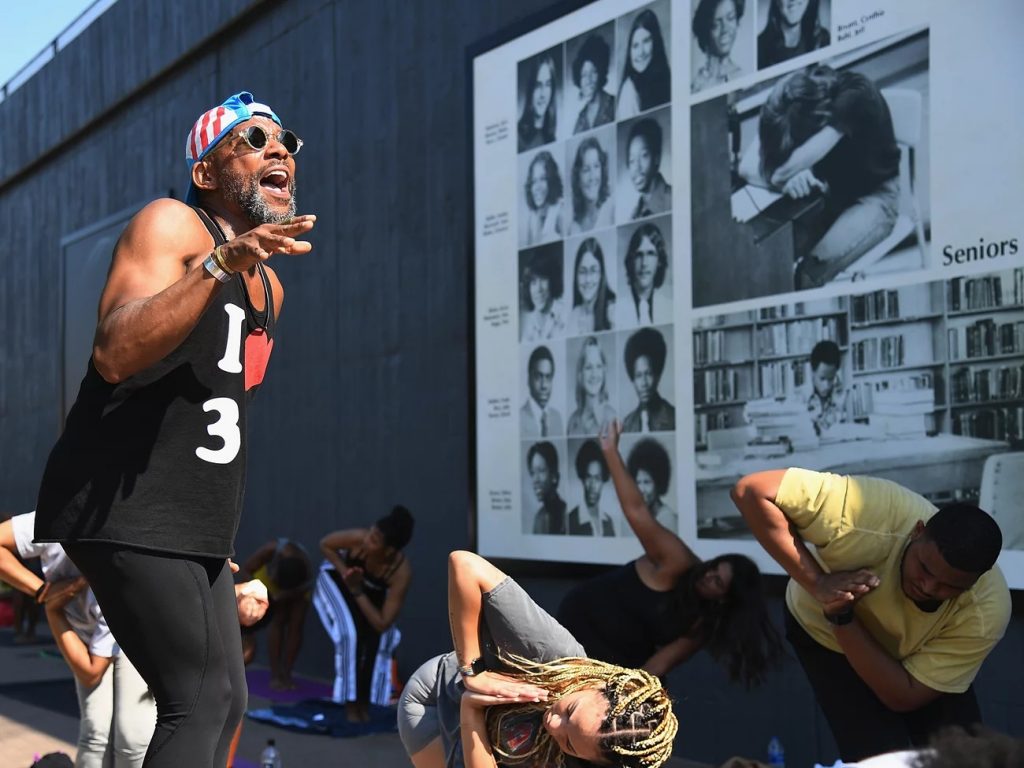
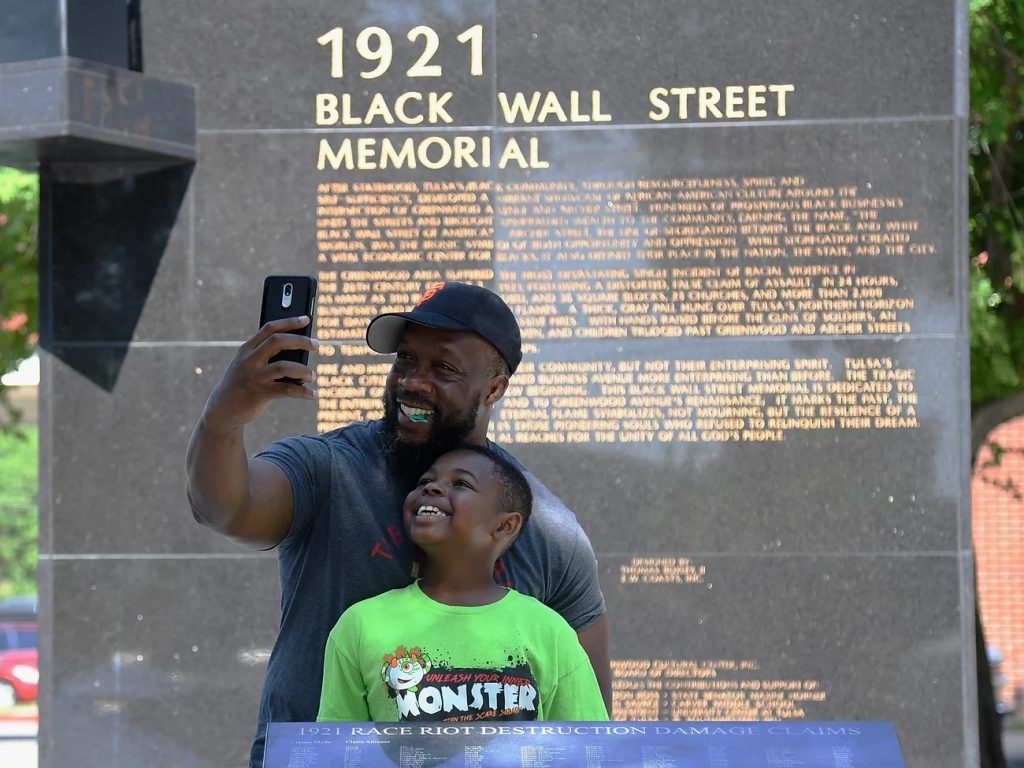
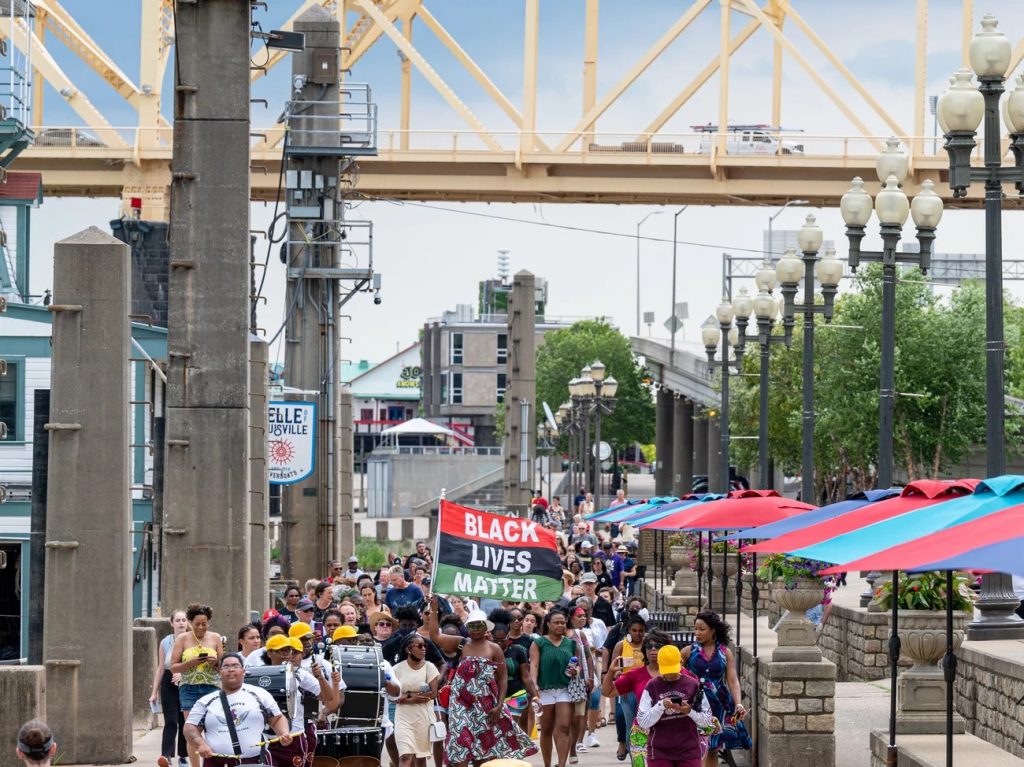
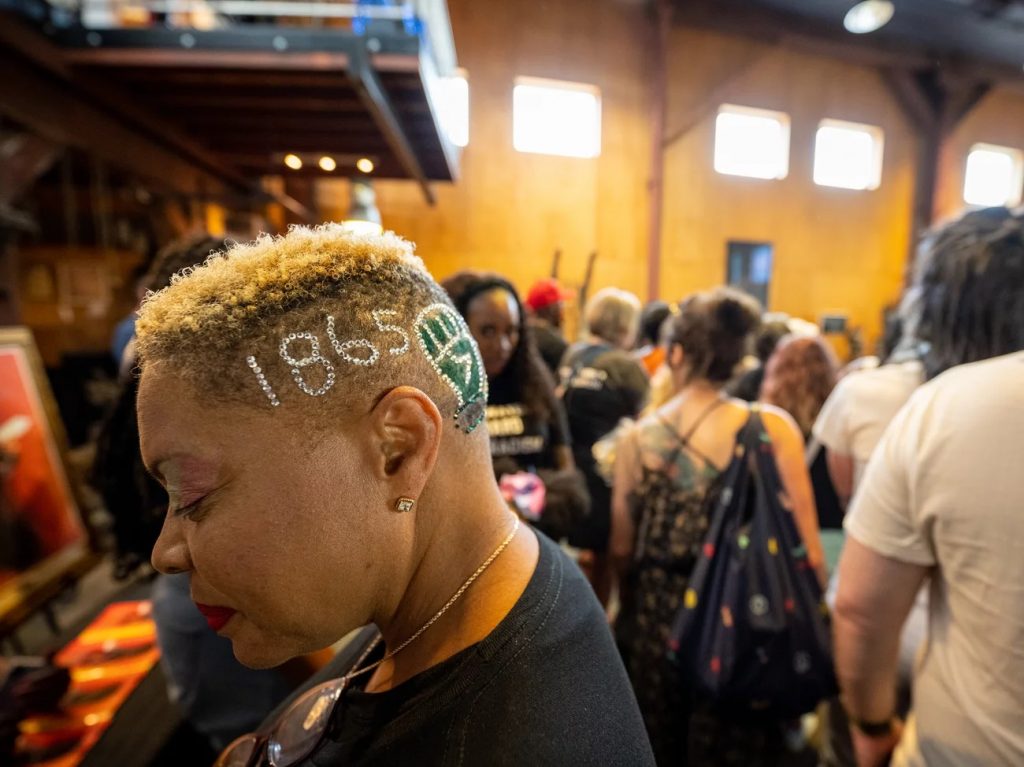
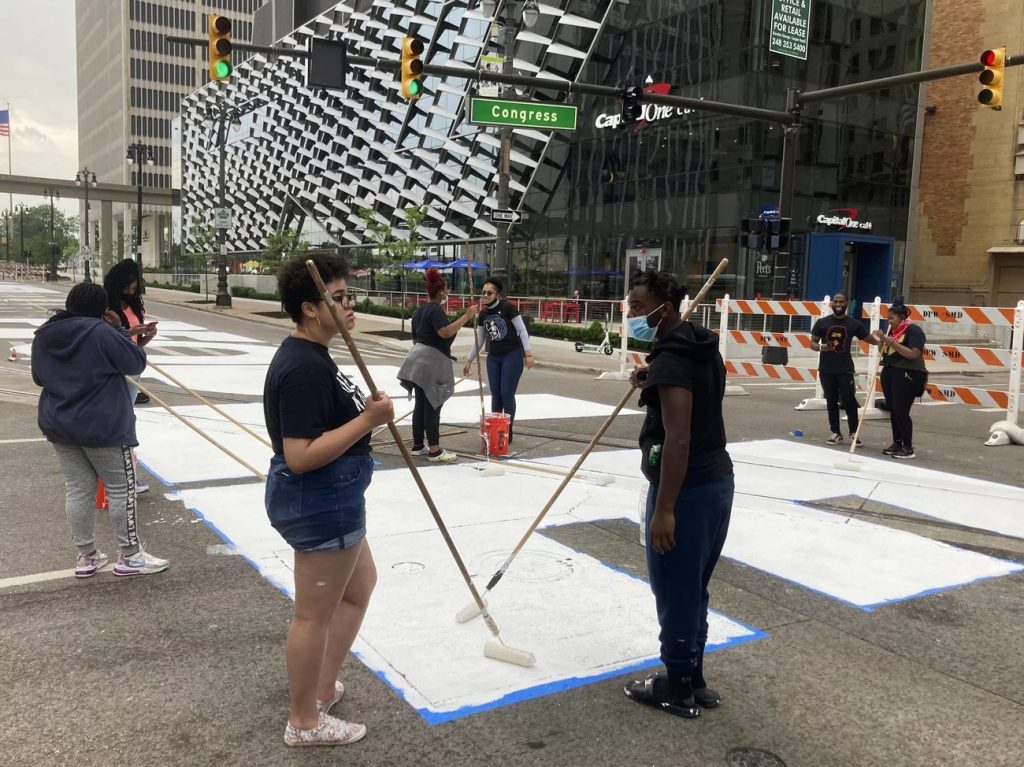
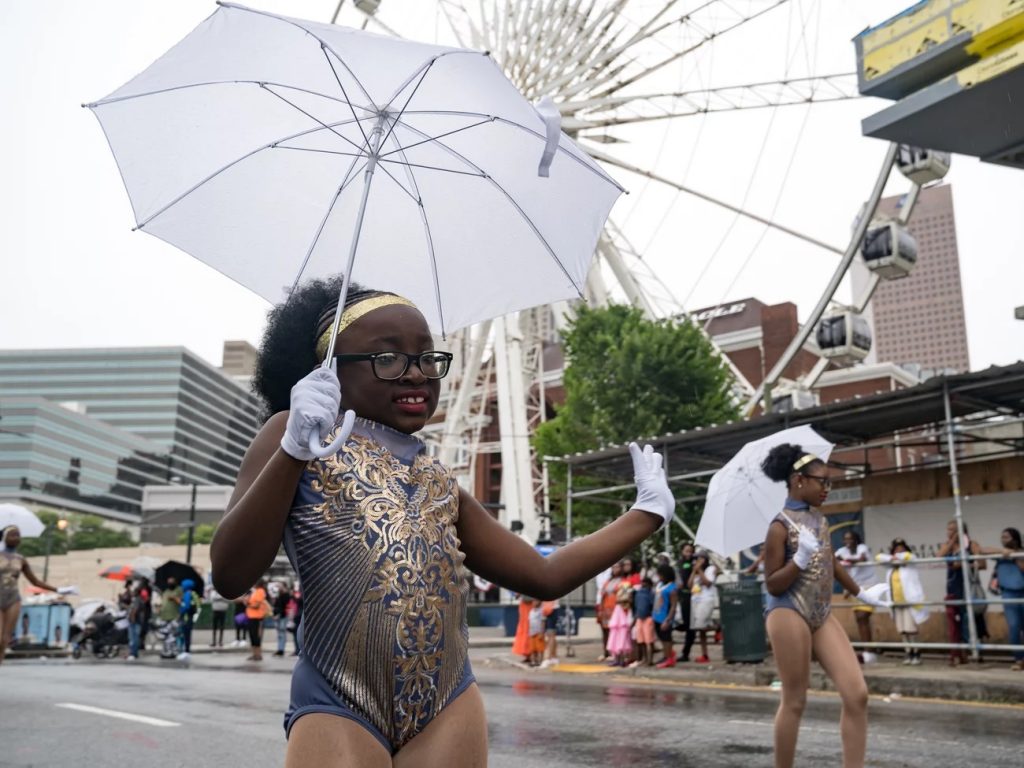
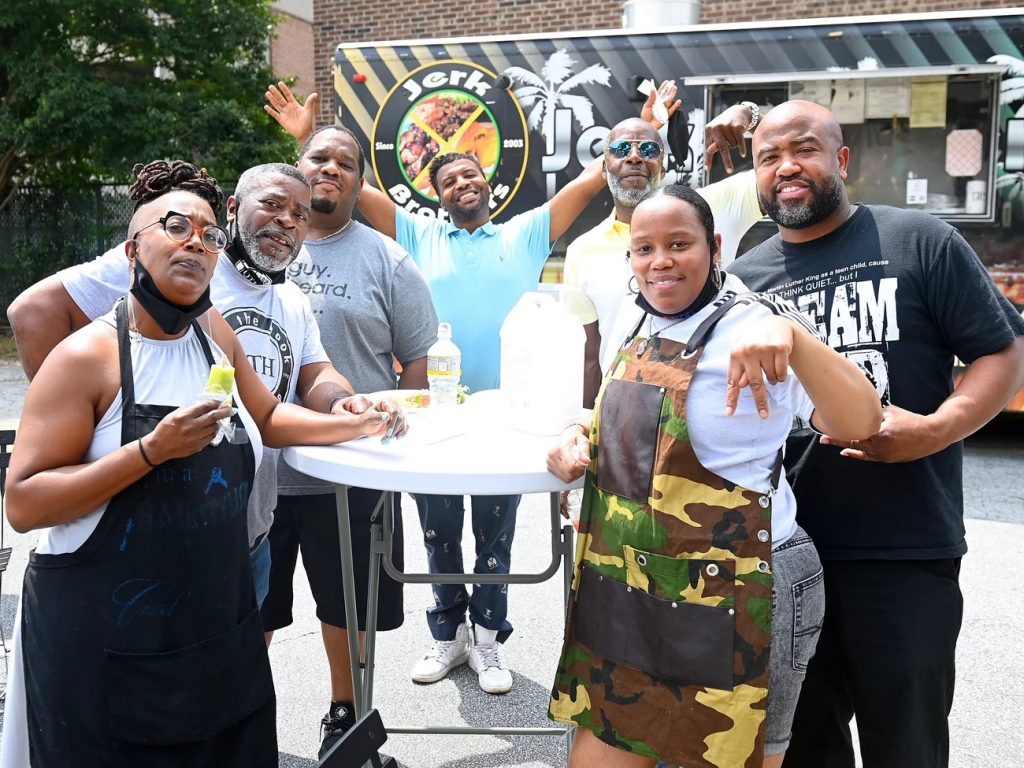
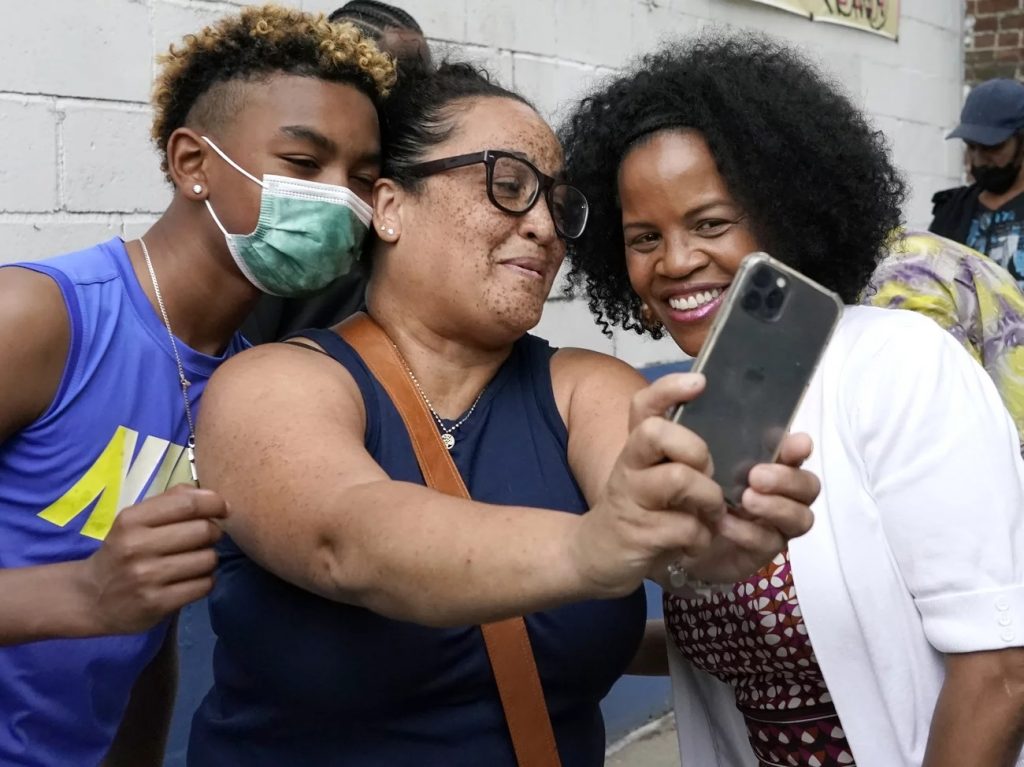

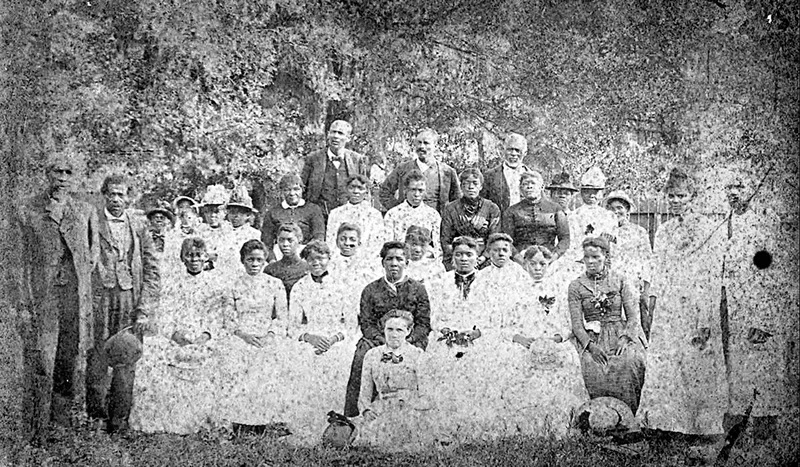
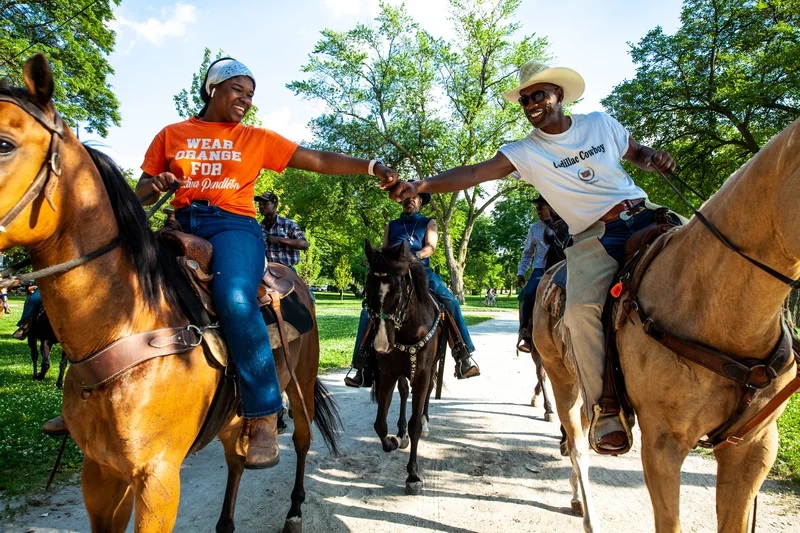
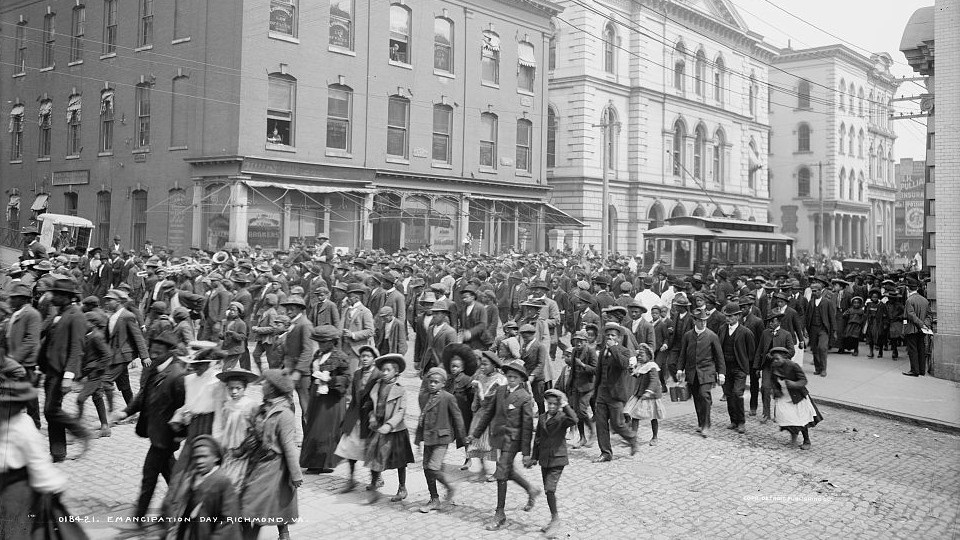
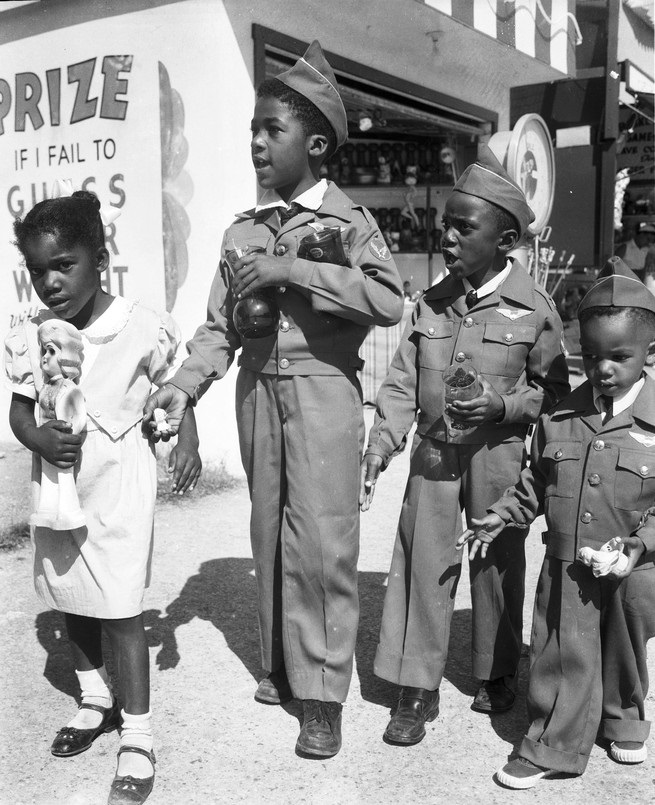
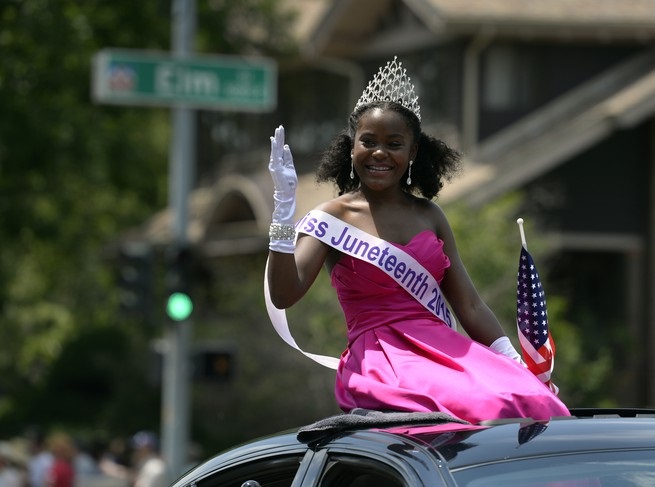
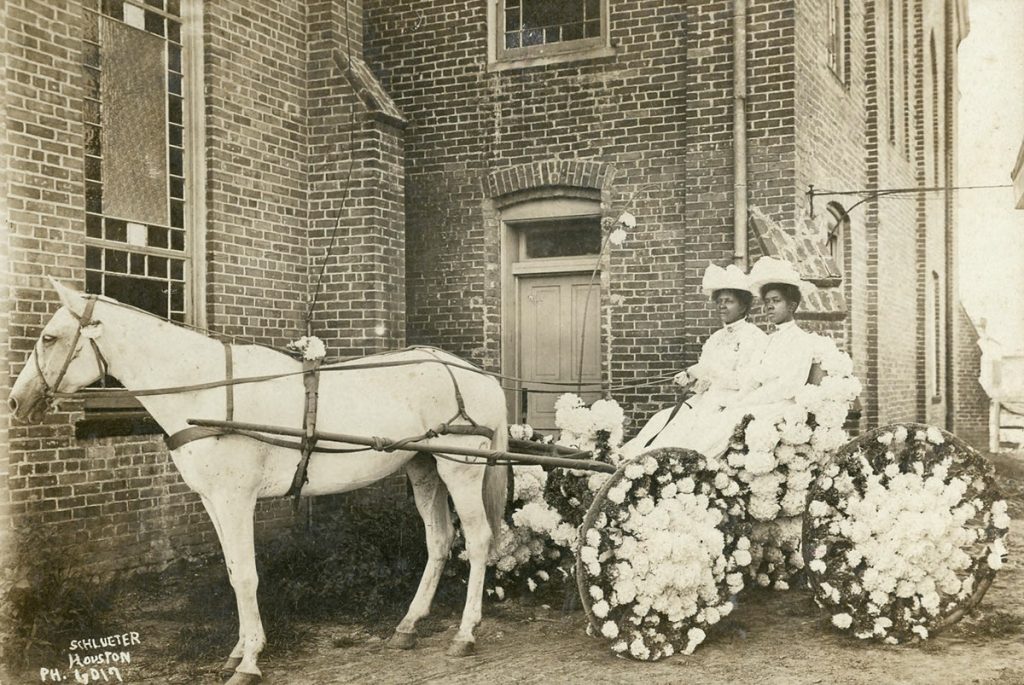
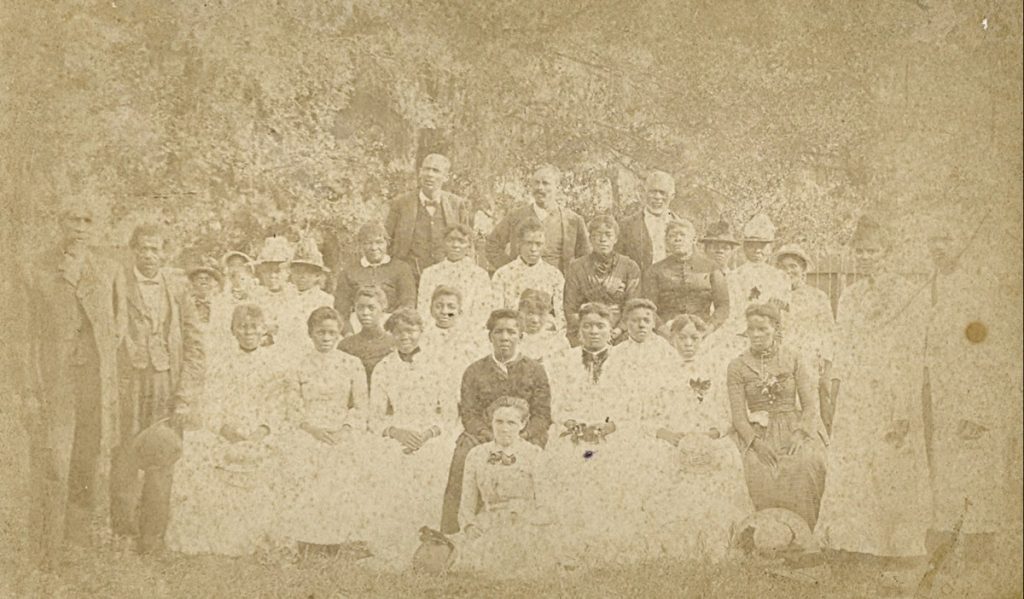
Leave a Reply